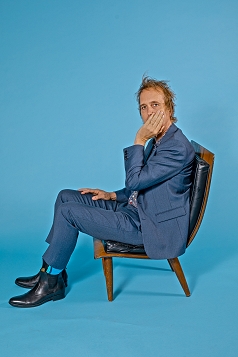UNCUT MAGAZINE
ABOUT "DYIN' ALL YOUNG"
CHUCK SPEAKS TO UNCUT MAGAZINE
I’m no spokesman for the hip hop tradition, but it seems to me it’s all about lucky collisions and the search for that magic ‘chocolate in the peanut butter’ combination. Sometimes chance encounter is your friend. I started working with DJ’s when they needed a guitar slinger. Some days all they asked me for was two bars of a swampy Tony Joe White-inspired riff. Out of these jams strange gifts came along.
In one form or another, sampling has been around forever. There’s a blues tradition that’s been doing it for hundreds of years. I’ve always believed it’s not what you throw in the pot but what floats to the top after you bring it to a boil. In the past I might have thrown out the bone that sank to the bottom. That bone was the sample, and it stayed in.
There’s something in OC’s (the singer sampled) voice that tells me he’s been there, seen it, and brought back the news about a generation on the front lines of a lot of needless bloodshed. There are very few bad seeds. People aren’t born monsters, they get turned into them. Lot of kids never get one chance. Hell, I had too many to mention.
You learn something everyday if you’re half awake. I never knew I would get such an education in sampling and litigation and all that other fun stuff, but that’s another story.
February 28, 2005
Chicago Sun Times
Chuck Prophet, “Age of Miracles” (New West): Prophet’s records always seem to find a way into my best-of lists. No one layers country, rock and 1960s soul idioms better than this former Green on Red guitarist. “Age of Mircales” includes the eerie/erotic “You Did (Bomp Shooby Dooby Bomp),” and “You Got Me Where You Want Me,” a duet with wife Stephanie Finch, recalls the innocent charms of Sonny and Cher.
by
Dave Hoeckstra
on
December 25, 2004
Seattle Weekly
Chuck Amok
Probably best known—“if at all,” as he jokes—as the white-hot guitar slinger for ‘80s Paisley Underground turned alt-country avatars Green on Red, Chuck Prophet finally seems to be carving his own niche in the rock world after 20 years of scuffling. With a résumé that boasts collaborations with everyone from Cake to Kelly Willis and a string of exceptional albums under his belt, Prophet’s name is begging to be uttered in the same breath as a cult of similarly styled, soulful storytellers: Dan Penn, Ry Cooder, and his spiritual mentor, Jim Dickinson.
Beginning his solo career at the dawn of the ‘90s with the country quaint Brother Aldo—a modest collection of late-night demos made for just a few hundred dollars—Prophet spent the next decade recording a succession of accomplished platters that won him acclaim throughout Europe but earned little attention in America. His stateside profile finally received a much-deserved boost with the release of 2000’s The Hurting Business—a stirring mélange of new technology and old soul that earned raves across both continents. This year’s equally ambitious follow-up, No Other Love, has pushed his burgeoning popularity even further, spawning a single, “Summertime Thing,” that landed in the upper reaches of the AAA charts.
On the eve of his two-night Seattle stand, we caught up with the always engaging Prophet on the road in Minnesota, in the midst of a tour with the Mission Express—his crack backing band featuring wife Stephanie Finch (see main story) and longtime Bob Dylan drummer Winston Watson. A gifted raconteur and doyen of deadpan, Prophet weighs in on a variety of topics, from his long overdue success, to working with Warren Zevon, to his envy of Keith Richards’ appendage.
Seattle Weekly: So the last time we spoke back in June you were getting your first bit of real exposure with “Summertime Thing”—which ended up becoming something of a hit.
Chuck Prophet: Yeah, it’s been a weird summer, man. David Lee Roth and Sammy Hagar made peace, Chuck Prophet had a song on the radio after 20 years in the business, . . . and we’re going to war. You know, it always comes in threes.
Have you seen any change in the audiences at shows because of the airplay?
Yeah, I’d have to say it’s had a profound effect on things. There seems to be an increase in the ratio of shapely young ladies to men with beards down in front. Of course, nobody’s complaining about that—not even my wife.
I mean, it’s just exciting for me to have my skinny foot in the door of pop culture. It’s such a little sliver, but to go into, say, a supermarket like Whole Foods—or as we in the band like to call it, Whole Paycheck—and hear my voice coming out of the speaker above the salad bar, it’s a total thrill.
You’ve also got your first big national TV appearance coming up (Oct. 8, on CBS’ Late Late Show with Craig Kilborn).
Yeah, we just confirmed that. That’s sent everybody in the camp here into a whirlwind of activity. Everybody’s arguing about what they’re going to wear. So it’s chaos. We’re actually gonna play the second single: the song with the uncompromisingly long title of “I Bow Down and Pray to Every Woman I See.” Hallelujah!
Speaking of women, in addition to your wife, you’ve had great working relationships with a number of female artists—Kelly Willis, Kim Richey, and Lucinda Williams, who you recently opened a tour for.
Yeah, it would be impossible for us to even invent a better tour to be part of. Lucinda’s got such a great audience, a really astute audience. And also, there’s some kind of mysterious, magnetic, charismatic thing to Lucinda. It was just a joy to watch her every night. It was like going to church. Or going to school. Or both.
It’s a weird coincidence but I was planning to ask you about working with Warren Zevon (Prophet played guitar on Zevon’s 2000 album Life’ll Kill Ya) and then news just came out that he has a terminal case of lung cancer.
I heard about it yesterday. (Long pause). I . . . I don’t . . . words kinda fail me on that.
Working with him, though, he was intimidating in so many ways, but also astonishingly intelligent. It was just incredible to be around him. [laughs] He must’ve drank about a case of Mountain Dew a day—and you didn’t want to be around when he ran out.
He really is one of the sharpest, funniest, wittiest people I’ve ever been around, and he truly intimidated the dog shit out of me. I tried to just kinda of blend into the wall when we were in the studio. But as acerbic as he is and as surly as he can be, he’s also one of the sweetest guys, too. I don’t know . . . it’s tragic.
He’s also a guy who didn’t lose his edge when he had a taste of success. Obviously, yours is on a much more modest level, but has the relative success you’ve enjoyed with the last two albums changed the way you approach things at all?
It’s taught me to follow my instincts. Because the way I’ve been making the last couple of records . . . I didn’t go in with any expectations. More and more, I’ve found people who let me make my records—for better or for worse—and there’s been very little meddling by anybody in the process. And I think that meddling has really fucked me up in the past.
But there must be some pressure on you as you look to write the next record?
It’s funny, Dan Penn said that after he got his first song cut, he was never ever really happy from that moment on. He said, “I might be out swimming or waterskiing or on a boat somewhere, but I’m never really quite happy unless I’m in the process of wrestling a slick idea to the ground.” And that’s kinda what songwriting is all about. For me, as much as this [new] record has made a little bit of noise, you’d think it should give me some confidence. But the reality is, I’m such a superstitious, neurotic, irrational motherfucker that now I’ve got this constant low-level anxiety of “Where’s the next one coming from?” [laughs]
And I hear people like Keith Richards do interviews and say [copping an English accent], “It’s like you put up your antenna and the songs just come to you, man.” And, I’m like “Damn, I gotta get one of those antennas.”
by
Bob Mehr
on
December 31, 2003
San Francisco Reader
Light Finally Shines on Chuck Prophet
There’s been lots of water under the bridge since Chuck Prophet’s band Green On Red tried to take the airwaves by storm in the 1980s. They wrote the right songs, had the right look, and performed a kick-ass live show. Big record labels rolled out the red carpet and extended Big Time contracts. But things just never panned out. Chuck quit the band, cleaned up his act, and throughout the ‘90s released critically-acclaimed, slim-selling CDs. But suddenly, Chuck Prophet’s on the radio. “Summertime Thing” is a hit, and finally, finally, America’s getting a taste of the genius of Chuck Prophet.
Jeff Troiano: What’s happening, Chuck?
Chuck Prophet: Not much shaking here. I finally resurfaced after about six months of submarine duty.
How long have you been home?
I guess for about a week. I went to Nashville and did some work after the tour ended.
How do you like that Nashville scene these days?
Well, I dig it, you know, because for me as a writer, well, for a number of reasons. I don’t really party anymore, so that’s what’s left of my social life-writing with other people. And Nashville is the last vestige of any sort of Brill Building spirit.
What kind of building?
The Brill Building was a place in New York where Carole King and Doc Palmis and Gerry Goffen wrote songs. If you got lucky, somebody might record one.
You’ve had some luck in that regard lately. Who’s been cutting your tunes?
Well, I’ve had a bunch of obscure records over the years, but last year I did have a top-40 single by a girl named Cyndi Thomson. It caught on. Cyndi’s a nice Christian girl, farm-fed, centerfold material. My friend Kim Richey and I wrote a song called “I’m Gone,” actually upstairs from the Red Vic on Haight Street. It’s kind of a ‘60s Tommy James kind of song. We made this real ghetto demo of it in this crappy studio with a cement floor, and we played it and cut it and put a few things on it, and we decided it needed bongos, and a year later it comes out on the Cyndi Thomson record-with bongos.
So they stayed true to the Haight Street feel?
Getting a song cut, even if the version strays off from what you had envisioned, is amazing. There’s no such thing as a bad cover version of a song. It’s a good day.
How do you get compensated when someone else makes a hit out of your song? Is that big money?
Well, yeah, there’s sort of a bittersweet ending to that story that I’m not going to bore you with, as far as making bad business decisions. On a record like that, you should make some change. You get compensated for every time it’s sold; you get your pennies for every time it’s played on the radio. It’s all gravy.
The reviews have been very positive for your new CD, “No Other Love.” How’s it selling?
This record was pretty rare. There was probably less blood on the floor after we finished this one than any of the others. We caught a little bit of a wave with the single on the radio. And for so many years we had just ignored North America, hoping it would just go away. Not that we were selling out stadiums or ballrooms across Europe, but Europe has always been good to us. Our single has allowed us to infiltrate pop culture, just a skinny little foot in the door. I heard it coming out of a little speaker in a salad bar in Philadelphia, which was rather cool. That helped a lot. And Lucinda Williams took us out on tour all summer; that really helped with record sales.
How did that happen with Lucinda?
My A&R guy, Peter Jasperson, is an old friend of hers. He played the record for her, she liked what she heard, looked up and said, “Do you think he’d come out on tour with me?” That was it.
How many shows did you do with her?
It might have been 20-some odd dates with her. She only plays three or four times a week, so we were out there for a couple of months in the Midwest and the East Coast.
What did you do with all of that downtime on the road?
We did everything we could do to keep up with her two buses. I tell ya’, man, I mean sometimes there might be 800 miles between gigs, and I have an ‘88 Dodge Ram, so we spent a lot of time sucking her diesel, as they say. But the highlight of the whole thing for me was when we had this show at an amphitheater, and the weather was beautiful, and these beach balls were bouncing everywhere. Lucinda just kept looking at these things while she singing like a puppy, and she said, “Heck, I don’t know. It’s a summertime thing.” But there were many nights when we’d play the gigs and we’d gather around the catering, and we’d have an official band meeting, and we’d say, “Okay, tonight, after we finish our set let’s load up the van, get the union guys to help, and get the fuck out of here, and try to get in four hours tonight. So we’d make the grandiose plans and then, inevitably, when the time arrived, I’d look around for everybody and they’d be glued to the side of the stage watching Lucinda’s first encore. Night after night, watching Lucinda is like going to church or going to school or both.
You tasted success in the past, during the Green On Red days. Did you ever have the big tour bus?
There were times. I mean, somebody else was paying for it. Yeah, we tasted success, but we were always well under the radar. We had a couple of major deals with labels, but we were always kind of stowaways for those labels. Eventually they’d have a board meeting and say, “Who the fuck are these guys?”
The new stuff seems to have lots of interesting influences. I hear a bit of hip-hop, some Middle Eastern, some sampling, and of course the roots-based stuff. How’d that happen?
As a songwriter, I’m a slave to traditional song craft, whatever I do. I mean, my heroes are still going to be Dylan and Carole King and Hank Williams. But for me, the process of making new records is a matter of constantly seeking new ways to cast the movie. I’m turned on by people like Moby and DJ Shadow, and I appreciate what those guys have been able to do by bending traditional song structures. As much as I admire that stuff, I’m still a “first verse, first chorus” kind of guy. I see some people out there taking some sort of modern approach and trying to shoehorn it into their songs, but that doesn’t really work. You’ve got to listen to the song’s needs and go with that.
How do you categorize your sound these days?
What I do is “American” music. You might call it “Americana.” I just do what I do, throw in what interests me, what I gravitate toward, throw it into a pot, bring it to a boil, and I see what floats to the top. The European tradition of music is that you play music as it’s written on the page; I’m not part of that tradition.
Which radio stations are playing “Summertime Thing”? What do you call that format?
There’s a format called AAA-WXRT in Chicago; KFOG here in San Francisco; there are a lot of them, kind of like KFOG. KFOG has had an incredibly profound affect on the things here at Chuck Prophet, Inc. I mean, I’ve got my ‘88 Dodge Ram van with 250,000 miles on it; I’ve got a five-piece band; I’ve got a drummer with a teenage daughter, and radio has really helped. I’d heard about good things like this happening, and I’d read about it. It’s just wonderful.
I heard something about a national TV appearance…
We did the Craig Kilborn Show. It was pretty exciting, pretty nerve-wracking. We had a rehearsal to set the camera moves and stuff, and you play it once through for the audience and that’s it. It was cool. Craig is not at his best when you’re playing, but I kept pointing over there and yelling at him, “Yo, Craigy, ‘I bow down and pray to every woman I see. Can you feel me?’” So that was sort of my inside joke. But he was pretty cool. He tracked me down into my dressing room and said, “I’m hearing a little Iggy Pop in there.” And I said, “Yeah.” And he said, “I’m hearing a little bit of Dylan, a little Beck,” and I said, “Yeah, yeah, yeah.”
Who are you listening to these days?
“Leonard Cohen’s Greatest Hits;” David Holmes’ Organization; I like the new Cornershop record. I like a little bit of the new Dixie Chicks’ record. I listen to a lot of old music and as much new stuff as I can. When it comes to songwriters, it’s still Warren Zevon, John Prine, and Randy Newman for me.
What’s it like doing what you do from here in San Francisco? Is it awkward sometimes? I mean, do you ever want to be in L.A. or living in Nashville?
No, I love it here. There’s just something in the air here. It sounds kind of corny, but there’s just a certain spirit and a certain quality to the light that I love. I moved here to go to college, and it has just always seemed like a place where people were waving their freak flags high. I’ve always been able to find a place to play and to work with some great musicians. And it’s not an industry town; it’s a town for freaks.
Who would you recommend that we listen to locally these days?
There’s a guy in the Mission from Detroit, Kelly Stoltz. We played a gig with him, and he gave me a vinyl record that he’d recorded on his 8-track. It’s probably one of the most beautiful things I’ve heard-that I can ever remember hearing. I’m all for Kelly Stoltz.
I’m going to throw a few names at you. In 10 words or less, tell me what you think. Here’s the first one: Eminem.
Stone cold genius.
Joe Henry.
Madonna’s brother-in-law.
Ryan Adams.
He’s just an exceptionally talented puke.
Britney Spears.
No redemption there.
Bruce Robison.
Oh, writer of perhaps the best song to come out in 2002-“Traveling Soldier”-as covered by the Dixie Chicks. If it doesn’t bring tears to your eyes, then just check yourself for a pulse.
Gram Parsons.
Beyond country rock; beyond rehab.
And last but not least, Mr. Bob Seger.
Vastly underrated.
Kelly Willis made the following quote about you: “If I could sing like anyone, I’d sing like Chuck Prophet.” What do you think of that?
She was confused but I’m not gonna call her on it.
Do you care what anyone else thinks about your music?
I can’t afford to care too much. I had a conversation with a friend the other who said, “Well, I guess everybody’s happy now, now that the record’s doing well.” What do I fucking care? I’d never get anything done. And that’s the kiss of death to start to care too much. Don’t get me wrong-I want the love. But I don’t wanna have to work to hard for it.
by
Jeff Troiano
on
December 31, 2002
THE TAPE HISS INTERVIEWS
[The following interviews are transcribed from John Sekerka’s radio show, Tape Hiss, which runs on CHUO FM in Ottawa, Canada. Each month, Cosmik Debris will present a pair of Tape Hiss interviews. This month, we’re proud to present an interview with Chuck Prophet, formerly of Green On Red, and from the Tape Hiss vaults, a 1992 interview with the tragically under-heard instrumental band, Pell Mell.]
CHUCK PROPHET
Green On Red were one of the ground breaking pioneers of cow punk, the thing that’s all the rage nowadays with bands like Sun Volt and Wilco. A band born a decade too early, they managed to lay down some criminally overlooked albums. Guitarist Chuck Prophet has emerged from the ashes with a nice collection of solo recordings, culminating in this year’s earthy “Homemade Blood”. From a San Francisco studio , Chuck talked about the old days, the new days, LSD trips, suburbia and dealing with the dictatorial producer, Steve Berlin. We also had an argument over a classic album.
JOHN: What’re you working on?
CHUCK: I’m just putzing around. I have to go to the studio and pay people to hang out with me. My lifestyle: friends and making records are all intertwined.
JOHN: Are you a musician seven days a week, twenty-four hours a day?
CHUCK: Yeah, but I don’t take it to bed. It could change any day. I could be down on Montgomery Street at six in the morning trying to sell flowers. I’ve thought about it.
JOHN: Let’s get to it: I quite like your new record, Homemade Blood. Compared to Brother Aldo, which was a more gentle, countrified album, it sounds like you just wanted to rock out.
CHUCK: Oh sure, sure. I was less interested in the process of making a record. I just wanted to get five people together, keep it simple, kicking the songs around, and trying to stick ‘em to tape with as little fuss as possible. You can hear people talking to each other on the record. The last record I made was with Steve Berlin [Los Lobos], and it was a bit involved. He couldn’t resist the temptation to put his fingerprints on anything and everything. He was running around with a flashlight, looking at what he could tweak. I just got a little tired of the process, you know? I like to ride. I like to get up and do something creative every day, and I wanted this record to be more of a live situation. Not that there wasn’t a lot of blood on the floor after I beat up the songs.
JOHN: I hear ya. It sounds like you got a little dirty. The press likes to pigeonhole you with a Rolling Stones sound, but what I hear is a bit of Tom Petty and The Replacements. Do labels offend you?
CHUCK: Naw, I also bear a resemblance to Tom Petty. I blame my parents. I don’t mind. The Stones, The Replacements - they’re just taking traditional stuff that’s laying around and turning it sideways. And that’s pretty much what I’ve always done.
JOHN: Do you know when you’ve nicked a riff, or does it sometimes come to you later?
CHUCK: Ah, I just ignore it and hope it goes away. I heard Keith Richards once held up an album for two months cuz he thought it [the nick] was gonna come to him. I used to pole vault over those mouse turds, but now I just walk through ‘em. I don’t care. By the time you beat up a song, take it through changes, if it’s still living and breathing by the time you stick it to tape, usually it’ll just go away. The initial riff or whatever it was that sparked the place in the back of your mind that made you think of sitting in the car with your Mom listening to Glenn Campell. They just go. It’s something in the subconscious editing process.
JOHN: How often do you write songs? Do they come to you, or do you tinker in the studio until something evolves?
CHUCK: I collect stuff, and every once in a while I’m lucky enough to get up in the morning and pull one out from the roots. Sometimes I gotta drag someone along. I do a lot of co-writing. Other times, I’ve written out of necessity, but those are never that good.
JOHN: Is there a difference making music in L.A. [Gun Club] and making music in San Francisco?
CHUCK: There’s music in the air in L.A., and I grew up in a time where music was coming from every car. It was everywhere. I took that for granted. I dunno if you get that everywhere. Living in San Francisco now - there’s an artistic thing in the air here that’s left over. It’s kinda cool. I don’t think they would have put up with The Grateful Dead in L.A. Some people say music’s all about geography - Jim Dickinson says the reason that the grooves are so sticky and greasy in Memphis is because the air just hangs heavier, all that humidity. There might be some truth to all that stuff.
JOHN: Dickinson produced Green On Red didn’t he?
CHUCK: Yeah, he’s the guru of voodoo. I’ve seen him do so many things that were invisible, just by being in the room. He’s a real presence. We did a live recording together in ‘94 which was bootlegged and is now on a French label.
JOHN: What label is that?
CHUCK: Last Call. It’s run by a fella who used to run New Rose, which was famous for putting out records by people who were dead, half dead, on the way up or on the way down.
JOHN: A great label. What is the official status of Green on Red anyway?
CHUCK: I dunno. We broke up every six months. We like to say that we went on strike. We’re still entertaining offers.
JOHN: So you keep in touch with Danny Stuart?
CHUCK: Yeah, I talk to him occasionally. He might leave a cryptic message on my machine recommending some conspiracy book or another.
JOHN: Can you reveal who wrote what in Green On Red?
CHUCK: Most of the time Danny carried away the writing. I might bring in something, a riff with words attached and we would run with it. Sometimes I’d bring in something that was completely finished.
JOHN: So this lyrical side of you is a new thing?
CHUCK: Naw, I’ve always written songs. You know writing with Danny was great. He’s fearless. He’d put a lot of things in songs that normally wouldn’t be in songs. He had a song about a guy with an enormous foot who made his living traveling in a minstrel show.
JOHN: I’m a big fan of Green On Red, especially “The Killer Inside Me” record.
CHUCK: Well you’re the only person who liked that record. We thought that it was just miserable.
JOHN: I’ve read that. Why do you think it miserable?
CHUCK: Well it was miserable making it. We thought that we were so bad-ass, so reactionary, and Danny had so much anti-establishment rhetoric. When we tried to make a record that actually rocked, we couldn’t rock to save our lives. I don’t know what it was. We were trying to make a ZZ Top record or something. It was like the Kingston Trio trying to jam with Robert Palmer. It just didn’t work. It was really bombastic, cold and overblown, and underneath it all were these tired, lackluster performances.
JOHN: But I love that record!
CHUCK: Maybe that’s what makes it exciting, but I don’t wanna listen to it.
JOHN: Really? The lead off track, “Clarksville,” is a total killer.
CHUCK: Yeah? Maybe we should stop apologizing and start a rumour that it’s a masterpiece… [pause] ...That record is a MASTERPIECE!
JOHN: Now you’ve got it. Were you guys fighting in the studio at the time?
CHUCK: Nobody cared enough to get that upset. We cut way too much stuff. Half of it had a sense of humour, it was kinda playful, and the other half was pretty bombastic. There were two records in there, and they were fighting each other.
JOHN: You know the CD version also has the No Free Lunch EP on it, so there are THREE records fighting it out!
CHUCK: There’s also an Australian bootleg which we authorized, that has all the outtakes. So if you’re such a sucker for punishment…
JOHN: Why go from Green On Red to solo work?
CHUCK: Well, I kept writing and playing outta necessity, outta habit. Luckily there was this bar called The Albion at the end of my street, and we could take it over on Friday and Saturday nights. These songs just appeared, and I thought I should get ‘em outta my head and on tape. I thought I was outta the music business. I was twenty-four years old, and I figured I got my shot. I was naive, thinking that cassette would be publishing demos. The tape got into the hands of some dude in England who decided it would make a record, and that’s what Brother Aldo was.
JOHN: Green On Red was always more popular with the British press. Is that still the case?
CHUCK: I suppose. We just spent more time over there cuz we got signed to a British label in ‘86 or something. They only see so far in front of their faces, so we ended up on the cover of Melody Maker and Sounds. By the time we were done over there, we were too tired to work back here.
JOHN: That was a great time for cow punk, back in L.A. with you, The Gun Club, The Dream Syndicate, X ... Was that a close knit community?
CHUCK: We crossed paths, though we never shared a house or anything.
JOHN: Do you carry a guitar with you at all times?
CHUCK: Naw, not really. A friend of mine is like that though. He was doing sixty days in county jail, so he made a guitar outta cardboard to keep him company.
JOHN: How would he play it?
CHUCK: He just moved his hands, knowing how it would sound. I’m thinking of making one - my neighbours would love it.
JOHN: Do you get written up and fawned over by guitar magazines?
CHUCK: Yeah, I get the obligatory piece with every record.
JOHN: How do you find that almost geeky worship? Is that a bit embarrassing?
CHUCK: It’s kinda fun, cuz the rest of pop culture has become too intellectual. It’s great to talk about Russian guitar pedals for a change.
JOHN: For all the guitar geeks out there, could you outline your latest gizmo?
CHUCK: Well, I’m really into this thing called an envelope follower. It plays whatever you’re playing an octave lower, and if you hit it harder - it’s touch sensitive - it bubbles like lava up an octave. It’s really painful.
JOHN: Painful to hear or to play?
CHUCK: Painful for everybody in the room - when it explodes. It’s really cool.
JOHN: Let’s get back to the new record. On the very catchy “Ooh Wee,” you mention being strung out on ritalin and colour TV at nine years old.
CHUCK: Wasn’t everybody?
JOHN: Damn right. Growing up in L.A. in the early seventies must have been pretty wild.
CHUCK: I was lucky enough to have an older sister who got into a lot of trouble.
JOHN: Were all your experiences second hand then, or did you find trouble yourself?
CHUCK: We don’t have that kinda time.
JOHN: We don’t? You must have one story you can sneak in here.
CHUCK: I was arrested and thrown in jail, peaking on two hits of LSD. But the story itself is kinda boring unless you were there. There is a moral, though: you gotta fix those parking brakes and things, else you get pulled over.
JOHN: Listening to “Homemade Blood” I get a feeling that you write about mid-America - some might call it suburban white trash - not condescendingly, more as an observation of the lifestyle.
CHUCK: The last couple of records were influenced by my immediate surroundings. Certain events led me back to living with my folks in the suburbs. There’s a photographer, Bill Owens, who took pictures of suburbia developments in the seventies. I saw his pictures in a museum and I got into that. And when I got back home everything had changed. The Dairy Queen was gone. I found myself bumping into ghosts, and some ended up in my songs.
by
John Sekerka
on
January 1, 2002
BAM Magazine
Homemade Prophet
Chuck Prophet is literally livin’ large, so we arrange to meet for coffee with one caveat: “It’s got to be the right place, because I take up a lot of space,” he said. That’s ok. The guy has plenty to shout about.
His fourth solo album, “Homemade Blood,” shows off his stunning songwriting, guitar playing and vocals—a traditional, rootsy, raw, and heartfelt stew that digs for the source but comes out “sideways.” He has a new label, Cooking Vinyl and he’s been to Europe twice since the first of the year; he’s off again this Summer for four European festivals and a U.S. tour with his mighty band—Max Butler; guitars, Anders Rundblad; bass, Paul Revelli; drums and Stephanie Finch; keyboards and vocals. He just saw the release of a live collaboration with buddy and Memphis music legend Jim Dickinson and he remains happily ensconced in his San Francisco digs with his band mate and partner, Finch.
Though his struggle with hard drugs could make a case for the contrary, nonetheless, Prophet appears to finally be comfortable in his own skin. He looks like rock and roll personified—tall and thin, hair that looks like it’s never been washed, a cigarette dangling from his lips—the kind of musician they don’t make too many of these days.
Eleven years is a long time for anybody to sustain the kind of musical career Prophet has (without ever holding a day job), particularly when one’s music supersedes trends. His lyrics will often fuse the honesty and artfulness of Bob Dylan with the tunefulness of say, Tom Petty. For more contemporary references, you could pigeonhole him in the same place Pete Droge, the Jayhawks and Wilco reside (Americana/No Depression-land), but that would be doing Prophet a big disservice as belongs in a class by himself. He was simply born at the wrong time.
Had he been born earlier, his keen sense of rock history, his continual search for “the source” probably would’ve earned him the accolades of an Eric Clapton or Keith Richards. Had he been born later, he would be as lauded and adept at deconstructing rock as Beck. But Prophet belongs to that middle generation who live in the shadow of boomer musicians and fans and precede X-ers who don’t always care much about the source.
“I feel like Rip Van Winkle. I got way too many miles on me, man,” he said. “I wish I had a generation. I would’ve made a great slacker, but I’m just a little bit old and I wanted to do things,” he said.
His song “You’ve Been Gone,” from the new record perfectly explains that kind of lost weekend lifetime of experience: You’ve been gone, you’ve been gone, clouds make rain and days make years…I think you’ll find some changes here.
“The line, Sweet Lorraine’s on SSI, her mind walked off before she said goodbye made me think of all my drinking buddies at the Albion,” he said, referring to a 16th Street watering hole. “All of those guys were on SSI. I swear it’s gotta be more work than working, but I wouldn’t know.” Somehow, time slips away.
With the songs presented in a down-home style with none of the artifice that is currently fashionable (i.e. the lamest band on the charts that uses mandolin and accordion you can think of inserted here), since his days as the teenage guitarist in LA’s Green on Red, commercial enthusiasm for Prophet has never reached critical mass. But he’s a survivor and possesses a certain wisdom well beyond someone of his 30 some-odd years.
“Part of being real is what you learn from good literature, like Raymond Carver poems. They’re really plain and the way people talk is really plain and it’s so plain it hurts because it’s not glamorous. If you get real you get closer to the truth and if you get closer to the truth you get closer to God and that’s art. If there’s a just God, those people who are pretending are going to get busted anyway,” he said.
Funny that a man who looks to rock’s poet laureate, Dylan, as king songwriter would be espousing the pleasures of plain.
“Most of Dylan’s greatest songs are painfully plain,” he asserts. “Even though ‘In the Garden’s got the most complicated chord structure I can think of, it’s really a straightforward song as is ‘Knockin’ on Heaven’s Door’. You know what he’s talking about. Anybody can tie a bunch of lines together, but if you know where you’re going with it, then it’s a lot harder.”
“I could’ve dressed up the songs on the album in all kinds of gothic shit, and I didn’t. People don’t need to come to me for that,” he stated matter of factly. “You can’t find a source for this music. It comes from some guy strumming a fence on barbed wire. The Stones took traditional music and turned it sideways and that’s what I’m trying to do,” he explained.
Prophet’s “plain” songs for his fourth solo album were inspired by a detox-break he took last year at his parents suburban East Bay home, while he weaned himself “from sucking the glass dick,” as he refers to the crack pipe.
“I went back home and I realized it was the last place I’d been before I was kind of fucked up and I could smell everything and it was weird and brand new and kind of spooky. That’s where I wrote ‘K-Mart Family Portrait.’ I know exactly what happened. It has a Linda Ronstadt melody from her album, ‘Mad Love,’ that my sister used to have. I got kind of inspired because I got kind of creeped out. I don’t really get that when I walk up and down 16th Street anymore. I’ve strip-mined the Mission. There’s nothing there,” he explained. “And all the rural stuff has been strip-mined too—don’t go there.
Consequently, the album’s deepest vein is that of suburban angst. “I started having dreams about being a kid,” said Prophet. “I’m not precious enough to write my dreams down and think I’m going to turn them into songs, but there was a lot floating around. It was new subject matter to stick into songs—I wanted to stay off the known roads.”
” My favorite Raymond Carver poem is the one where he’s sitting in his driveway in his station wagon drinking a six-pack and he can’t go inside because his family’s in there,” no doubt explaining the car parked in front of the pick-a-suburb home that adorns the album’s cover. When he finished writing, Prophet took his band into the studio to cut the songs live, to give the record the kind of free-wheeling feel that the group has developed as a consistent live act.
“Everything was a reaction to spending too much time in the control room on the last record. I wanted to have some fun with the songs and break out of the singer/songwriter mold.”
Prophet has kept the same line-up for some time which allowed the band to roll with the free-form and immediate recording process.
“I wouldn’t have done it like this if I didn’t have a band. Stephanie can sing around me which isn’t easy to do, but I never had a guitar player till I found Max. If it gets too comfortable, it’s not good, but when we’re on the road, we have these telepathic workouts. He knows when I bend over it means to do this—we don’t have to talk about it.”
As for living with a band mate, “it’s weird. You don’t really want to show anybody a song till it’s done. I got up one night to go to the bathroom and I went and picked up my guitar and Stephanie was yelling, ‘What are ya doin’ in there?’ and I was whispering a song into a tape recorder. I yelled back, ‘I’m writin’ a song.’ When I’m just pulling things out of the air, I don’t want anyone around.”
“Credit” is one of those fantastic songs that came out of the air while Prophet and one of his co-writers, Kurt Lipschutz, were working together. “It’s one of those character songs and a play on words. A song like ‘My Generation’ doesn’t look very good on paper but when he stutters it means so much more. Or like ‘Unsatisfied” by Paul Westerberg when he screams—it means so much. When my friend Kurt and I printed it out and it didn’t look that good, we thought, we’re really on to something now,” he laughed. “And I get to scream in it,” said Prophet referring to the line, “I want some CREDIT.”
“Someone in my manager’s office said, ‘That’s a good double entendre and my manger said, ‘It’s a single!’
Prophet doesn’t really look for outside projects, but often they(itals) find him(itals). He just played guitar on a little-known singer/songwriter, Calvin Russell’s new album.
“He used to walk about ten steps behind Townes Van Zandt,” he said. It was produced by Dickinson and features the legendary Muscle Shoals rhythm section. “It’s a top 30 album in France, as we speak. And I got to record in Memphis with Dickinson, and that was great.” Last year, he recorded with another songwriter’s sidekick, Dylan’s old pal, Bobby Neuwirth. Prophet spoke of the thrill of recording with yet another legend.
“There were eight guitar players in the room… Steven Soles, Billy Swan, Neuwirth, Rosie Flores…we did a run down of the song and I wasn’t sure who was going to play guitar and Swan said, ‘you take the lead,’ and I got to play my Telecaster with Billy Swan playing rhythm guitar. He played rhythm guitar for Kristofferson, you know?”
He also recently recorded with beat poet Herbert Hunke. “He’s dead now, so no one else is going to get to do that. I’m not the biggest Chuck Prophet fan, so I don’t have 50 side projects where I think everything I touch should be released. I do a lot of things and most of them are invisible and they probably just should be.”
“I’d still like to do a record with Stephanie, but we move at our own tempo,” he said.
Though he may have profited more had been born alongside his spiritual mentors—Dylan, Petty, Springsteen, Young, Dickinson, Van Zandt, Kristofferson, Neuwirth, Chilton and the like, Prophet won’t back down. Plus, he’s already made a couple of marks on the pages of rock history.
“I survived the Paisley Underground—now that was dumb. Some journalist was trying to get me to dis the No Depression movement—I wouldn’t, as long as we understand they didn’t invent it. I actually think Uncle Tupelo were pretty good and I like Wilco,” he said cheerily.
“I’m not nostalgic and I don’t think things used to be better. I think these are the good old days. “
by
Denise Sullivan
on
April 18, 1997
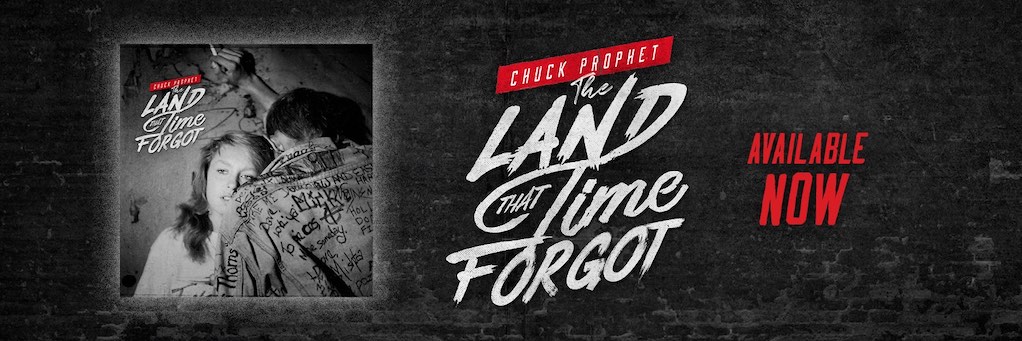

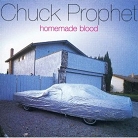



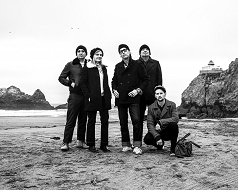
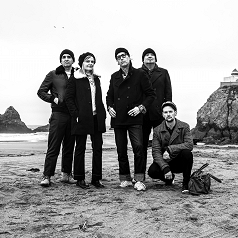
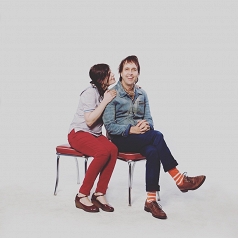
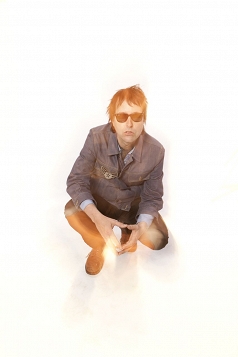

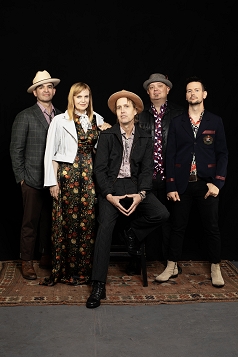
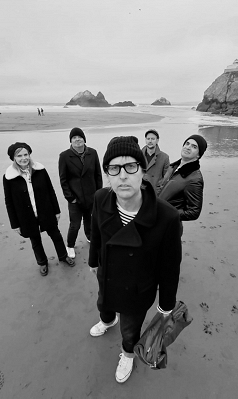
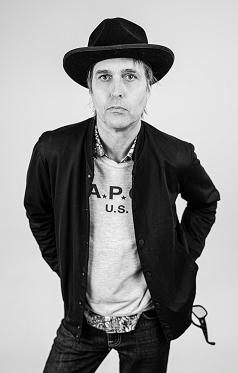
3_238_159auto_s_c1.jpeg)
